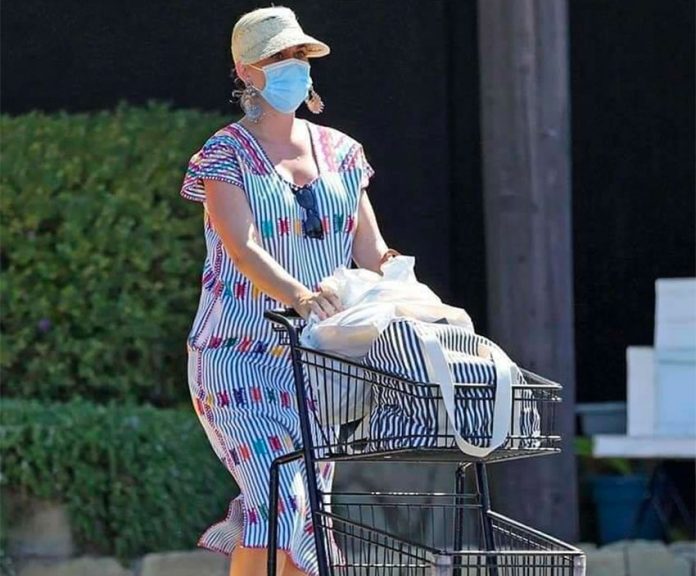Original, handmade Oaxacan clothing is coming to Amazon after an Australian designer was accused of cultural appropriation.
The accusations came after pop star Katy Perry was photographed wearing a Oaxacan dress marketed by designer Pippa Holt, and prompted the state government to help local artisans market their goods directly to the public.
Perry, who is awaiting the birth of her first child in August, was seen on a trip to a supermarket in California earlier this month in a purple huipil, a traditional garment woven from cotton grown in the hills surrounding the town of San Juan Colorado in the state’s coastal region.
Holt said she purchased the rights to the dress, and others, from Oaxacan artisan Felipa Hernández, then rebranded the huipil designs as Pippa Holt Kaftans, which she sells for 17,000 to 23,000 pesos (US $766 to $1,037) per dress.
Knives Out star Ana de Armas was also photographed this month wearing a Pippa Holt Kaftan, a garment that sells for 13,098 pesos.
The controversy over whether the former Vogue UK stylist appropriated the Oaxacan designs prompted Holt to post a statement to Instagram and turn off the comments.
“We appreciate — we don’t appropriate,” a portion of the lengthy statement read. “We are part of a community and have worked with the same group of weavers for four years, helping build prosperity and sustainable business in their villages. We pay fairly and on time. We pay the weavers’ asking price, which is above market price for this kind of handwork. Our relationship is one of respect, trust and mutual benefit.”
In response, the head of the state’s DIF family services agency, Ivette Morán de Murat, announced a program where textile artisans will be able to sell their creations directly on Amazon, eliminating the need for intermediaries.
“Today I proudly wear a huipil created and designed by artisans from San Juan Colorado, on the Oaxacan coast. The government of Oaxaca has made a link for them to sell their handmade products through Amazon, so that everyone can have a little piece of Oaxaca,” she announced on Twitter after meeting with the seamstresses.
The garments will also be available through Aripo, the Oaxacan Institute of Crafts online store, “so that there are no intermediaries, so that no one calls these huipiles kaftans, and no one says these designs belong to them either,” she said.
On Amazon’s Handmade platform, artisans will be able to determine their own price for their work. The website will collect a 10% commission and will waive registration fees.
Appropriation of indigenous Mexican designs is not uncommon. In 2015 French designer Isabel Marant was accused of copying a Tlahuitoltepec blouse. In 2019, designer Carolina Herrera’s collection was accused of copying the traditional Zapotec flowers of the Isthmus of Tehuantepec.
Source: El Universal (sp), Milenio (sp), Vogue (sp)
